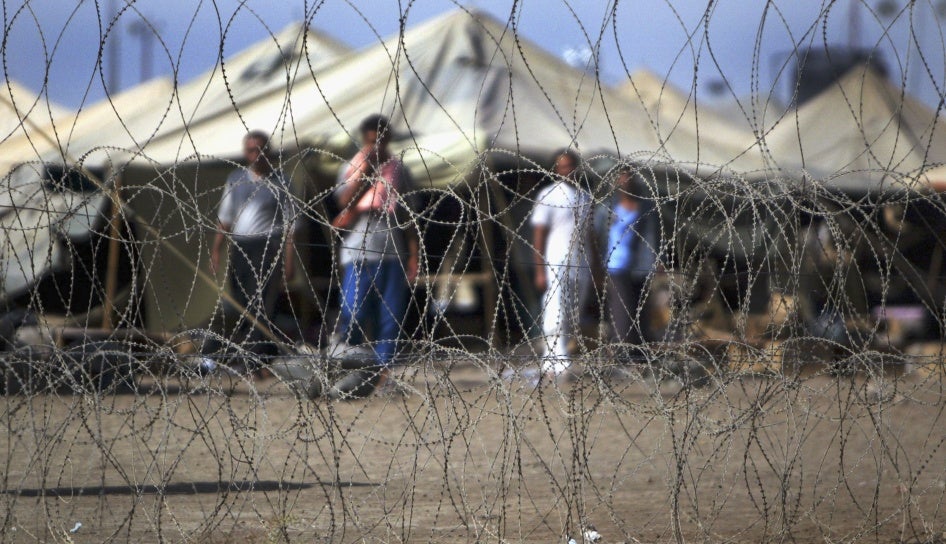Twenty years have passed since the media broke the story that US forces and the CIA were torturing “war on terror” detainees at Abu Ghraib and other US-run prisons in Iraq. But for the men who were tortured, it feels like only yesterday. The physical and mental scars they carry serve as daily reminders of the abuse they suffered.
Still, several of these men told me they hold out hope that the US government will apologize and give them the redress they deserve.
On April 15, a federal court in Virginia will hear the case of Al Shimari et al. v. CACI, a lawsuit brought by the US-based Center for Constitutional Rights on behalf of three Iraqi torture victims. The suit asserts that CACI, a private security company which the US government hired in 2003 to interrogate prisoners in Iraq, directed and participated in torture and other abuse at Abu Ghraib. The men are seeking compensatory and punitive damages.
CACI has tried to have the case dismissed 20 times since it was first filed in 2008.
Al Shimari et al. v. CACI was only able to advance because it targeted a military contractor. US courts have repeatedly dismissed similar cases against the federal government because of a 1946 law that preserves US forces’ immunity for claims that arise during war.
What’s more, the US government hasn’t created any official compensation program or other avenues for redress for those who allege they were tortured or abused. Nor are there any pathways available to have their cases heard.
This lawsuit is a critical step towards justice for these three men who will finally have their day in court. But they are the lucky few. For the hundreds of other survivors still suffering from past abuses, their chances of justice remain slim. The US Government should do the right thing: take responsibility for their abuses, offer an apology, and open an avenue to redress that has been denied them for too many years.










